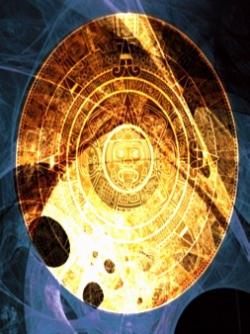Questions and Answers
Question: In Revelation 22:16, Jesus Christ describes Himself as "the Bright and Morning Star." In Isaiah 14:12 we read of a "Lucifer" (Latin for "morning star," from the Hebrew helel). Is the Bible in some way equating Christ with Lucifer? Please explain.
Answer: The Greek New Testament uses several words and phrases referring to "the morning star" in connection with Jesus Christ. In addition to Revelation 22:16, 2 Peter 1:19 mentions the "morning star" (phōsphoros) in connection with the ultimate salvation of the saints (by implication, when Jesus returns to resurrect the saints). Phōsphoros is a Greek proper name for the "morning star," meaning "light-bearer." In Revelation 2:28 we find the Greek phrase "the morning star" (ton astera ton prōinon). "He who overcomes" (v. 26)— the victor in the Christian struggle—shall receive this reward directly from Jesus Christ, who was the "light" that came into the world (John 1:9; John 8:12).
The analogy is, just as the "morning star" is the herald of the dawn, so Jesus Christ is the herald of salvation as the King of the coming Kingdom of God on earth (compare Isaiah 60:1-5). He is "To give knowledge of salvation to His people by the remission of their sins, through the tender mercy of our God, with which the Dayspring from on high [the sunrise] has visited us" (Luke 1:77-78). Moreover, the "Davidic King"—the Messiah or Christ prophesied to rise out of Israel—is symbolized as a "star" (kokhav) in Numbers 24:17.
Does all this have any connection with Isaiah 14:12, where we read: "How you are fallen from heaven, O Lucifer, son of the morning! How you are cut down to the ground, you who weakened the nations!"? First, examine the name "Lucifer" (which means "light-bearer"). It is the Latin proper name for the "morning star." In the King James Bible, the name Lucifer is unchanged from the Latin Vulgate. It translates the Hebrew proper name for the "morning star," Helel ben Shahar, meaning "Shining One, Son of Dawn." The Greek Septuagint version uses yet another proper Greek name for the "morning star" to translate Helel in Isaiah 14:12: ho Heōsphoros ("the dawn-bearer"). All these proper names and the New Testament names and phrases discussed above refer to one object: what we know today as the planet Venus (the brightest visible "star" known to ancient man) when it appears in the morning sky.
The being known as Lucifer was once one of the "morning stars" or chief angels (Job 38:7), and was also a "covering cherub" (Ezekiel 28:14, 16) like one of the two portrayed on the Ark of the Covenant (Exodus 25:19-20). Perhaps this being was the "brightest" of three covering cherubs at God's throne (the other two being Michael and Gabriel, the only other angels mentioned by name in the Bible).
Note also that five planets (Mercury, Venus, Mars, Jupiter and Saturn, with Venus again by far the brightest) all can appear as "morning stars" to the naked eye. As a"covering cherub,"Lucifer once walked among mysterious stones of fire at God's throne (Ezekiel 28:14)—the very same stones or coals of fire that are shown in the midst of four cherubs likewise shown associated with God's throne (Ezekiel 10:1-2, 6-8). Lucifer (called "the king of Tyre" in Ezekiel 28) is not mentioned in Ezekiel's visions of God's throne.
In any case, since Lucifer had to rise above the earth's clouds in order to assault God's throne in heaven (cf. Isaiah 14:12-14), and since he is described from a very earth-centered perspective, it follows that he had an office on earth before his rebellion against God. Many times throughout the Bible, directly and indirectly, he who became Satan the Devil is described as the past and present ruler of the earth. We can infer that as the chief "morning star," he was once the herald of God's Kingdom and government on earth. Jesus, the Christ, however, is now the "morning star"—because He will soon come to restore God's Kingdom and government on earth, to put an end to Satan's rebellion and (under his influence) mankind's rejection of truth (cf. Acts 4:19-21).






